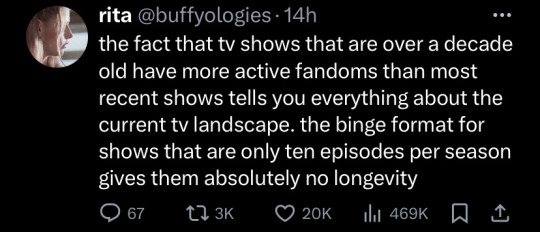Text
NEED HELP WRITING? (a masterlist)
I have likely not added many that I've reblogged to this list. Please feel free to roam my blog and/or ask/message me to add something you'd like to see on this list!
Synonym Lists
Look by @writers-potion
Descriptors
Voices by @saraswritingtipps
Show, Don't Tell by @lyralit
Tips & Tricks
5 Tips for Creating Intimidating Antagonists by @writingwithfolklore
How To (Realistically) Make a Habit of Writing by @byoldervine
Let's Talk About Misdirection by @deception-united
Tips to Improve Character Voice by @tanaor
Stephen King's Top 20 Rules for Writers posted by @toocoolformedschool
Fun Things to Add to a Fight Scene (Hand to Hand Edition) by @illarian-rambling
Questions I Ask My Beta Readers by @burntoutdaydreamer
Skip Google for Research by @s-n-arly
Breaking Writing Rules Right: Don't Write Direct Dialogue by @septemberercfawkes
Databases/Resources
International Clothing
Advice/Uplifting
Too Ashamed of Writing To Write by @writingquestionsanswered
"Said" is Beautiful by @blue-eyed-author
1K notes
·
View notes
Text
Name a better feeling than getting the first comment on a fic you were uncertain about and knowing that at least one person liked the tiny piece of your brain that you put on the internet
28K notes
·
View notes
Text
Don’t underestimate my desire to not wanna
40K notes
·
View notes
Photo

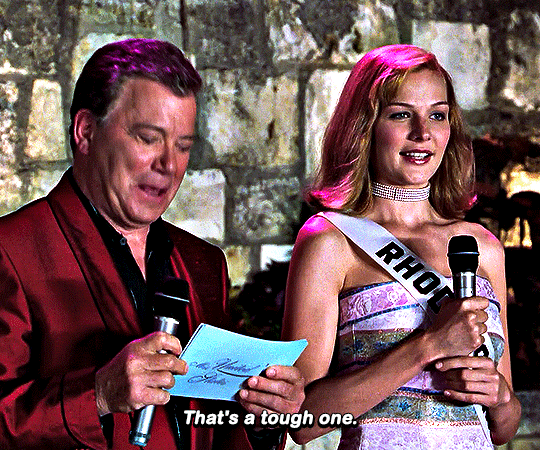
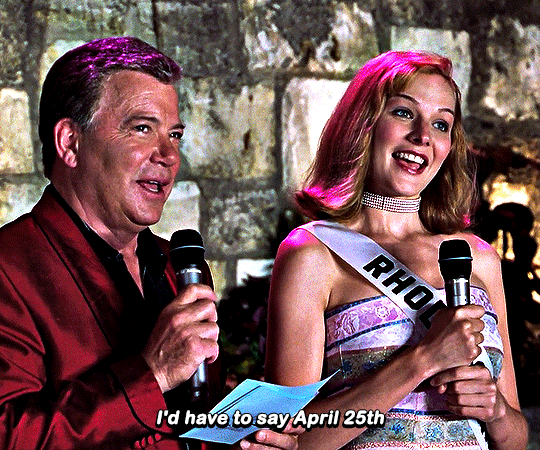

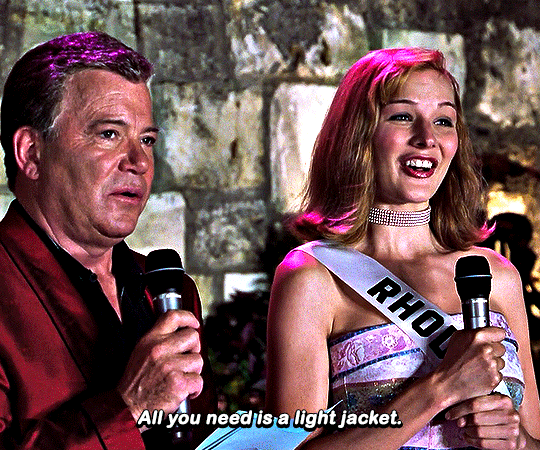
Miss Congeniality (2000) dir. Donald Petrie
17K notes
·
View notes
Text
Yeah, I liked the idea of these 2 basing their entire careers/lives around being able to read people through facial expressions and voice tones, but not needing to do any of that with each other.
Re: Cal's voice- You really have to limit the 'darling's and the 'luv's, for sure! And he has a cadence that's hard to replicate in text. I think the only thing you can really do is have him abruptly change subjects in the dialogue. Have him do almost run-on sentences but then shift gears midway through. A bit sporatic, but direct. It's a balance!
There you go, @jenni3penny 😉
13 notes
·
View notes
Text
Pretty sure we would've gotten this 10 years down the road with Slibbs. Lol!
You know what trope I wanna see more of? Couples who have been married forever who are estranged but still in love but estranged. You know me better than any other person on earth. I haven't seen you in three years. I never stopped loving you. If I have to spend another minute in your presence I will murder you. I'm hurt and I need you right here with me. God you're such a dumbass. You're the only one I trust to do this job. I want you out of my sight.
5K notes
·
View notes
Photo
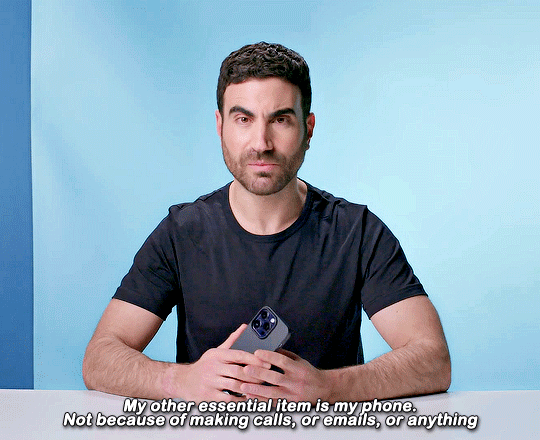

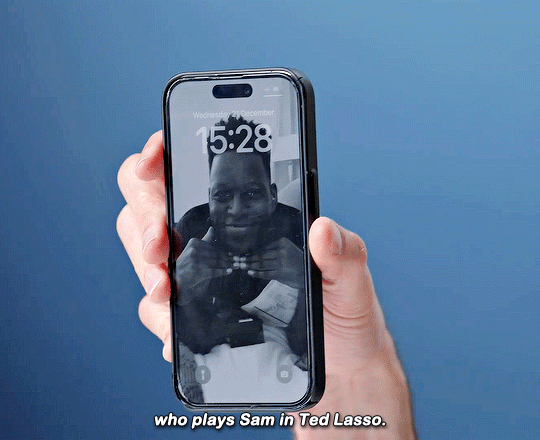

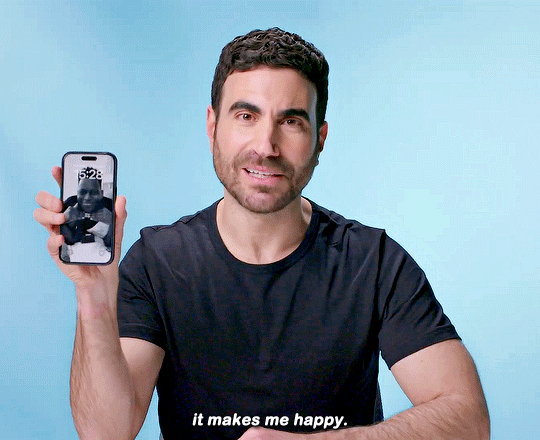
10 Things Ted Lasso’s Brett Goldstein Can’t Live Without
3K notes
·
View notes
Text
I always love shows in the first season, because they're like a foal trying to find their feet and they throw loads of things against the wall to see what will stick for the second season and beyond. Unfortunately this one didn't make it past the first season but I would've loved if they'd given Gillian this quirky food obsession throughout the show. So damn cute.
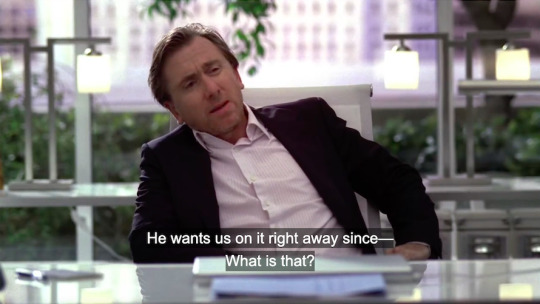
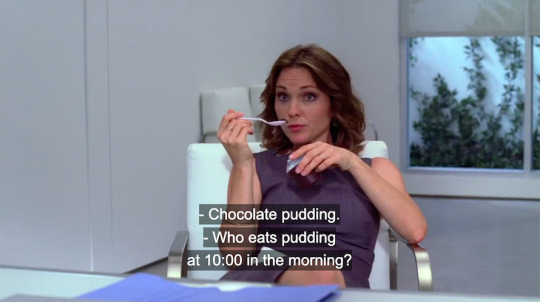
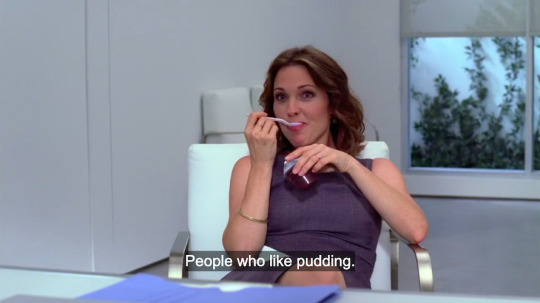

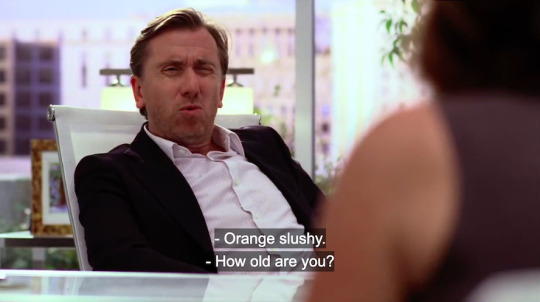

Lie to me* 1x01
265 notes
·
View notes
Text
This gets another delicious layer now that Kelli Williams has come out!
I will never not be amused about Jennifer Beals' story that she was so used to flirting with women from The L Word that when she joined the cast of Lie To Me, she automatically started flirting with Kelli Williams who was a bit confused but just went along with it, until Tim Roth put up a fuss because Jennifer was playing his ex-wife with some lingering sexual tension and she was supposed to be flirting with him, not Kelli
70 notes
·
View notes
Text
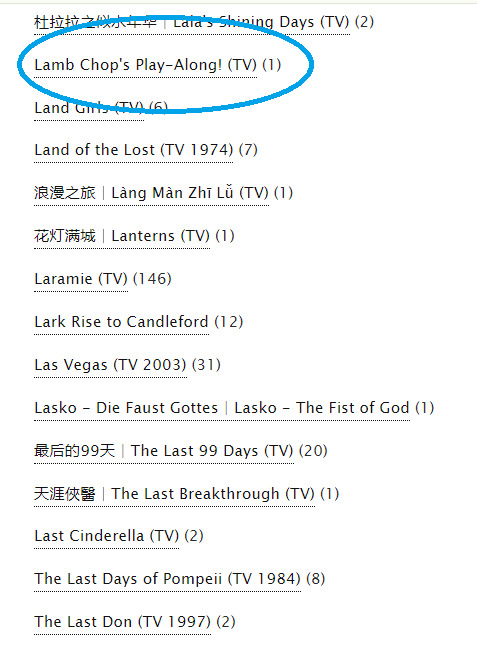

I wish they'd show the rating, because I'm ridiculously curious but also fearful. It could go wrong in so many ways.
1 note
·
View note
Text
Writing Exposition (Or Turning a Textbook into a Story)
Exposition concerns every facet of your work from character descriptions, backstories, and relationships, to world history, geography, religions/faiths/superstitions, politics, and current events. Whenever the author takes an aside to say “Joe, Bob’s second cousin, said ‘hello’,” the exposition is establishing that Joe is Bob’s cousin.
So shaming a story for its poor handling of exposition is like shaming a movie for bad visual effects. Yes, some of it is probably bad, but I guarantee that you did not notice every single VFX shot in the movie, and you weren’t supposed to.
Most examples of bad exposition occur when the following happens:
Informed Character A exposits to Informed Character B and tacks on “as you know” with full sincerity
Random Important Detail gets dropped in conversation that does not fit the tone or direction of conversation
Character suddenly monologues about The Thing unprompted
Convenient Breaking News Alerts
Character, out-of-character, begins monologuing about The Thing even when prompted
The pacing screeches to a halt so the Exposition Train can thunder past
Exposition exists to give information, and in order for a reader to understand a story, not all of it can or should be agonized over making perfect. Settings have to be established. Character names and relationships have to be understood. “Telling” over “showing” is, in my opinion, perfectly fine when the “showing” would take more lines, effort, and priority over a single inconsequential sentence. Heck, sometimes the “telling” is better than the “showing”. The trick to understanding when, how, and to what degree to give exposition is making it motivated.
What is motivated exposition?
See this post about character descriptions and the plight of the cliche “mirror” trope for unmotivated exposition.
Motivating your exposition means giving it a reason to exist where it does, prompted by the story you’re telling. Citing the “mirror” trope: I can have my character wake up and describe themselves to you, but in doing so, that rarely tells the audience anything more than just what to picture as they read. Or, I can have my character description spread out as those details become relevant. They’re describing their hair color and texture as it begins to irritate or distract them, telling us both what it looks like, and what our character thinks of it, and a little bit about their personality in how they treat it.
I can open the first chapter with a long-winded editorial about the long lost king destined to unite the shattered kingdoms, or I can wait until the tale becomes important to my characters to tell.
I can spin tapestries about politics before you’ve even met your hero, or I can wait until those politics begin to cause the hero problems and then invite the hero to talk about why those politics cause problems.
See this post about pacing and ensuring your scenes always do at least two things at once. Motivated exposition takes bland information’s singular purpose (to inform) and gives it flavor in coloring the personalities of the characters who give and receive it.
When to give exposition
Caveat: Not all front-loaded exposition is poorly-handled. Everyone loves the Star Wars title crawls because they’re a part of the episodic movie experience. Whether it’s a cheap way to deliver information is irrelevant.
Most prologues exist to front-load exposition and, because I love using Lord of the Rings as my shining example in every post, the trilogy opens with a lengthy speedrun of the main villain, some of the important pieces on the chessboard, the importance of the ring, the smeared reputation Aragorn must live up to and repair, and an idea of the stakes should the heroes lose. Not only is it a prologue, it’s a narrated prologue. There’s an impressive amount of information given in not a lot of time.
Last Airbender begins every single episode with a reminder about the 100 year war and the aggression of the Fire Nation and the purpose of the avatar.
With that said, prologues and title crawls are their own tangle of weeds.
As I said above, exposition should be given when the story gives it reason to exist. Don’t talk about the politics until you have a scene where discussing politics is relevant.
If you need to establish your cool, unique magic system, wait until you have a character using that magic and give it in little chewable bites. That character likely isn’t using every trick in the book right then and there. If they wrote Last Airbender as a novel and started explaining the other three bending styles the second Katara levitated some water, it would read sloppy and slog.
Or, leave the exposition as a mystery to be told later. Make your audience crave the hero’s backstory, piecing together little hints throughout the narrative until just the right moment comes along where your hero would realistically start spilling the beans about themselves. Have other characters frustrated at the lack of information. Have other characters missassume and be wrong about the information they think they know.
Have your characters crave knowledge about their world as much as your audience does.
How to give exposition
Exposition can be given three ways: Via the narrator, via dialogue, or via images or texts observed by the narrator (think news broadcasts or the front page of the paper, books, letters, videos, diary pages).
No matter which avenue you give exposition through, the less random it is, the less “hand of the author” the audience sees. Characters given a lucky break by a convenient breaking news alert is a mini deus ex machina —- the heroes do not earn their victory, it’s just given to them. They are not active in the plot making decisions, they are being railroaded by information as it falls into place before them.
Narrated exposition
The narrator’s internal monologue will interrupt the story to explain whatever needs explaining in that moment. The difference between it reading like a textbook and reading like a story is whether or not this information is important to the narrator.
Meaning, what does my hero feel about this new information? Katniss Everdeen in Hunger Games exposits the entire book because she’s alone for a fair chunk of it with no one to talk to, and she’s no stranger to the politics and history of her world. And yet, she has such strong feelings about everything she says that it doesn’t feel like she’s just giving information for the sake of informing. Everything she says and how she says it reflects on her personality and how she views her world.
Dialogue exposition
When Katniss is clueless about the tribute parade process and all the nuances of Capital life, how she asks about this information and how Effie, Cinna, and Haymich tell her also speaks to their personalities and biases about what they’re saying. In essence: Their exposition is in-character, and, thus, services their characters.
This is the complete opposite of when two informed characters exposit to each other information both already know for the sake of the audience because the author has no other way to give said information. A prime example is the hero happening to overhear two minions discussing The Plan dropping lines like “as you know” (which makes it worse every time).
The only time “as you know” works is when it’s in character. As in, the villain expositing to their minion they think is stupid and the minion reacting to that assumption appropriately. Or, the heroes are gathered to discuss The Plan and the leader of the meeting goes “as you know” because that happens in the real world. Bonus points if some characters are irritated by the redundant recap.
Exposition via dialogue also opens the door for lies, half-truths, and characters simply being wrong or blinded by their biases. Or, characters simply being ignorant of the world they live in. In Lord of the Rings, Gandalf is like 3,000 years old and has been all over Middle Earth. It doesn’t break the plot to have Gandalf exposit because he would realistically have witnessed or have deep knowledge about historical events and politics. Aragorn, too, is 87, and has ranged all over the place. He’s the future king and thus had better know his history and politics. Aragorn expositing makes sense.
Say what you will about Last Jedi but it has a prime example of nuanced exposition: Kylo Ren and Luke Skywalker have incredibly different perspectives on if/how Luke attempted murder on his nephew. There’s 3 sides to every story and the audience is never shown the truth. Had this been given in the title crawl, it would have lost much of its potency.
Dialogue also nurtures the relationships between the characters talking. Telling stories brings people together. If a character is sharing their backstory, why are they telling the narrator, and what does this mean to them as they tell it? If a soldier is sharing his grizzled leader’s backstory around a campfire, how does his relationship with his leader impact how he tells that story, what language he uses, how he sounds, the expressions on his face?
Third party exposition
Information given from an object can be incredibly hit or miss, depending on how hard the heroes worked to obtain it, and whether or not the object in question is meaningful to the heroes.
In the Assassin's Creed games, you abandon the gameplay in whatever historical era you're playing in to watch cutscene after cutscene of exposition (specifically referencing the Ezio Trilogy) by characters no one cares about, giving information that no one cares about, when we'd all rather just keep playing the game.
You can literally have a character read from a textbook, logbook, or daily minutes. What matters is how that info reads, and how the character responds to it. Is the information prejudiced or saturated with bigoted language? Is the mere existence of it where it is horrifying?
In the Mines of Moria (Lord of the Rings) Gimli learns that all his kin have been murdered by goblins once he sees their corpses all impaled with goblin arrows. Later, he finds his dead cousin’s crypt containing a dead dwarf cradling a book that tells of the downfall of Moria. The log entry isn’t finished, and the penmanship rapidly degrades as the dwarf writing it likely dies from his wounds, ending with the ominous, “We cannot get out, we cannot get out, they are coming.”
Had Gandalf warned Gimli ahead of time that all the dwarves were dead, or had they never found the crypt or figured out the owners of the arrows and simply were told “oh yeah we’re about to be attacked by goblins, I suspect they’re the reason Moria is a ghost town” that would have lost all emotional impact, and character development for Gimli.
This doesn’t have to be just objects, get creative! Have the hero watch a parody retelling of the Big Event. Have someone tell it like a ghost story around a campfire. Have it be a crazed rant all across live TV that no one takes seriously. Have six different characters remember it differently and all argue over who’s right. Have someone tell it poorly, thinking it “just a stupid rumor”.
When to withhold exposition
Satisfaction is the death of desire and sometimes uncovering the details of an enticing tidbit of information ruins whatever the audience had imagined to fill in the blanks. In terms of “showing” vs “telling” concerning worldbuilding, deciding whether to have a character speak about the information, or actually writing the scene they’re referring to, is entirely dependant on the story you’re telling.
If you are going to write a flashback, or describe a video of the event, that flashback and video has to be *packed* with as much information as you can cram in there as artfully as you can. Flashbacks and dream sequences take up space and entire scenes and settings need establishing so the audience isn’t floating in the ether trying to follow along. Which tends to mean that the meat of the flashback is barely half of the words you’re now forced to read.
Decide how important it is that the audience sees the incident as it happened, versus told in the aftermath through the biases and flawed memory of another character.
Sometimes the fewest amount of words pack the biggest punch. You can have a shattered soldier describe the battle of which they’re the last survivor in gory detail, or you can have them simply say “it was hell” and let the oomph hit in their expression, how their voice cracks, how vacant their eyes look. The injuries they sustained, the traumas visible in how they hold themselves. At that point, the audience can imagine whatever hell they want. At that point, what you are "showing" (the emotional and physical toll taken on the speaker) is likely way more important than the battle itself.
Concerning pacing — no matter how hard you worked on designing your politics and royal lineages and fantasy geography, odds are if that information isn’t important to your characters, it isn’t important to your readers. It’s not motivated.
I love trivia and fantasy maps as much as everyone else, but I like them on the wikis and next to the table of contents, not interrupting an engaging story.
And, give your audience credit where credit is due. How many fan theories stand on the basis of a few scant lines of narration or zoomed-in snippets of background characters (R+L=J anyone?) and pieces of costume? The mystery is what makes it fun, and I just watched the criminally disappointing second adaptation of the Lightning Thief completely robbed of that mystery every chance they had.
—
In short, the amount of exposition isn’t what makes it well or poorly handled, it’s how and when it’s delivered. Inception is my favorite sci-fi movie and the entire script is exposition, but the way it’s given is entertaining. Motivating your details to exist for a reason, to be given exactly when the time is right and not a moment before, is the spoonful of sugar helping the medicine go down.
Make it timely
Make it relevant
Make it important to the cast
Make it earned by the cast
Make it entertaining
234 notes
·
View notes
Text
40K notes
·
View notes
Photo
Just when I think I'm out, they keep pulling me back in.
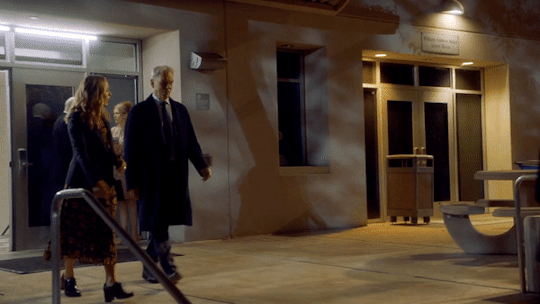
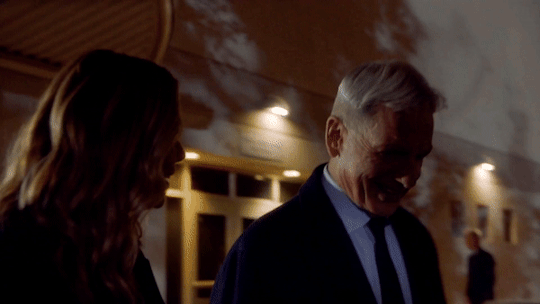

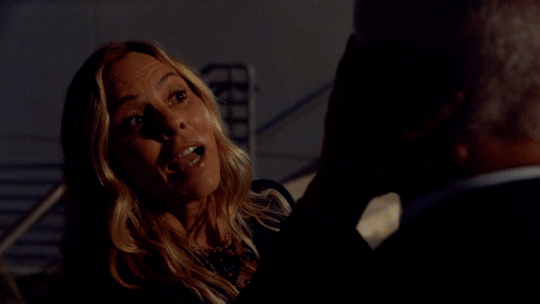
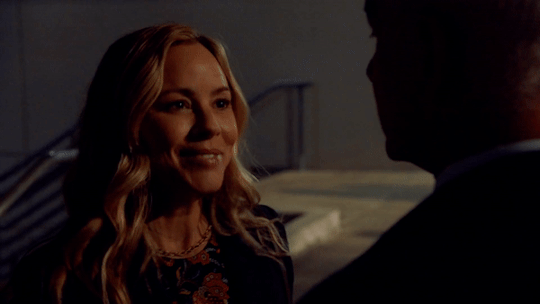

Jack caressing Gibbs’ face.
aka the moment that anyone who thought they got over Slibbs during the hiatus realized it was actually impossible to just “get over”
302 notes
·
View notes
Text
Reblog to let your followers know that despite your current obsession your previous obsessions still exist and are simply lying dormant until they awaken and strike again
30K notes
·
View notes
Text
Show up at work like hi boss sorry I'm late my I was helping my mother track down one specific 90s dungeon crawler for the purposes of obtaining a muffin recipe the developer hid in the files
100K notes
·
View notes
